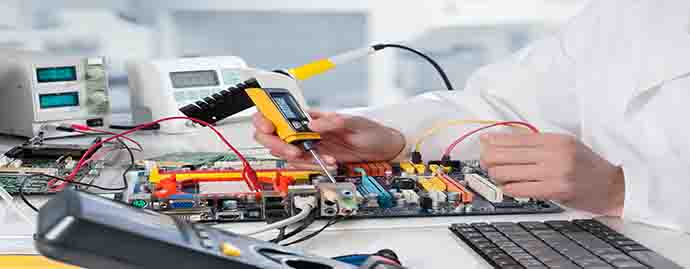| Start Date | End Date | Country | City |
|---|

 +966 920007771
+966 920007771

Objectives
1. Understanding electrical preventive maintenance
2. Reading electrical drawings and schematics
3. Safe operation and maintenance of electrical equipment
Outlines
ELECTRICAL PREVENTIVE MAINTENANCE (EPM) PROGRAM
• Energy conservation
• Planning an EPM program
• Personal safety
• Equipment loss
• Production economics
• Main parts of an EPM program
• Programmed inspections
• Recordkeeping
• Training for safety and skills
ELECTRICAL DRAWINGS AND SCHEMATICS
• Single line schematic diagrams
• Three phases schematic diagrams
• Logic and ladder diagrams
• Cabling and wiring diagrams
• Electrical documentation
ELECTRICAL SAFETY TECHNIQUES
• Principles and basic theory
• Static electricity and protection
• Electrical arcing and heating
• Inspection of electrical systems
• Testing of electrical systems
CABLES
• Types, construction, selection and installation
• Insulation materials for LV and HV cables
• Failure of cables and fault detection
• Visual inspection and cable testing
SUBSTATIONS AND SWITCHGEAR
• Historic perspective
• Rating and specification
• Components
• Safety policies
• Gas-insulated substations and equipment
• Maintenance, repair and asset management
MEDIUM VOLTAGE SWITCHGEAR
• Switchgear options
• Outdoor and indoor MV switchgear
• Panel configurations and auxiliary devices
• MV switchgear ratings
TRANSFORMERS
• Theory, construction and cooling
• Voltage control and installation
• Power and distribution transformers
• Installation of large power transformers
• Fire protection measures and Troubleshooting
• Preventive maintenance for transformer
MOTOR PROTECTION, CONTROL AND MAINTENANCE
• AC and DC electric motors
• 3 - phase AC induction motors
• Motor control and protection
• Installation and fault finding
• Failure analysis and testing
• Maintenance and cleaning
• New technologies and developments
POWER QUALITY
• Surge and transient protection
• Earthing and noise control
• Harmonic sources
• Capacitive/inductive relationships
• Harmonic site analysis procedures
• Power conditioning
• Installation guidelines
• UNINTERRUPTED POWER SUPPLY (UPS)
• Continuity of power and UPS systems
• Rectifiers and inverters
• Static UPS systems
• Testing and periodic inspection
MV AND HV TESTING OF ELECTRICAL EQUIPMENT
• Insulation, high potential and oil tests
• Transformers
• CT and VT testing
• Ducter and field tests
SAFE OPERATION AND MAINTENANCE OF ELECTRICAL EQUIPMENT
• Key safety factors
• Isolation, visual checks and earthing
• Monitoring hot spots
• Emergency first aid training
EARTHING AND EARTH FAULT PROTECTION
• Faults, types and effects
• Causes of inadequate earthing
• Inspection, testing and monitoring
• Maintenance, fault finding and troubleshooting
• Personal protective equipment
• SUPERVISORY CONTROL AND DATA
ACQUISITION (SCADA)
• Components
• Monitoring, testing and maintenance
CIRCUIT BREAKERS
• Operating principles
• Types: air, oil, minimum oil, vacuum, air blast, SF6, moulded case circuit breakers
• Ratings, inspection and cleaning
• Preventive maintenance for circuit breakers
Generators
- Design and construction of generators and auxiliary systems
- Generator operation, including interaction with the grid
- Monitoring, diagnostics, and faults
- AC Generator fundamentals, Construction & cooling system & generator auxiliary systems
- Excitation System, voltage & frequency Control
- Determination of flow of real (P) and reactive power (Q)
- Determination and control of fault level
- Control of reactive power & voltage
- Control of active power & system frequency
- The requirements for reactive compensation – voltage profiles
- Inspection practices, including stator, rotor, and auxiliary systems
- Ideas for improving plant reliability and reducing costs and electrical failures
Who Should Attend
Engineers, Technicians and any one need to learn about electrical maintenance
Duration
5 Days










